GwinnettForum | Number 20.54 | July 28, 2020
NOT EVERYONE has a sidewalk named for them. Davida Baker, formerly of Norcross, learned recently that the sidewalk along Britt Road at Norcross Tucker Road to the Gwinnett County line is named for her. At the ribbon cutting were Andrew Thompson, Alan Chapman, Emory Morsberger, Commissioner Ben Ku and Davida. Ms. Baker is a 40 year resident of Gwinnett, and involved in many activities, including the SPLOST Citizen’s Project Selection Committee. She is also the founder of Project Kids Eat. In 2012, the United Way Women’s Leadership Council in Gwinnett awarded Baker its Women’s Legacy Award.
 TODAY’S FOCUS: Before Economic Recovery, We Could Face a New Financial Crisis
TODAY’S FOCUS: Before Economic Recovery, We Could Face a New Financial Crisis
EEB PERSPECTIVE: Book Outlines How Four Presidents Tackled Difficult Situations
ANOTHER VIEW: Talking About Race: It’s a Fear We Have To Work on to Resolve
SPOTLIGHT: Lail Family Dentistry
FEEDBACK: Routine Air Ride Is Fascinating, Listening to Congressman Lewis
UPCOMING: County Seeks Online Input in 14 Mile Segment of Loop Trail
NOTABLE: Snellville Seeks Input on Unified Development Ordinance
RECOMMENDED: The Lost Warriors of God: The True History of the Knights Templar by Thomas J. Madden
GEORGIA TIDBIT: Hank Aaron Breaks Babe Ruth’s Record in Atlanta in 1974
MYSTERY PHOTO: Mystery Photo Could Be Set In Europe, or Maybe in the United States
LAGNIAPPE: Three Components Getting Together at the Same Time
Before recovery, we could face a new financial crisis
By George Wilson, contributing columnist
STONE MOUNTAIN, Ga. | We are not on an easy and fast road to economic recovery as Trump purports. The biggest and most important obstacle is the present surge in COVID-19 cases and deaths. This has been caused by the lack of national leadership under Trump. If government benefits — of an extra $600 a week — are not expanded past July, it will affect recovery by lowering consumer spending.
![]() More importantly, corporations are facing a critical debt situation. Corporate borrowing, spurred on by low interest rates, was a staggering $16 trillion last year. Most worrisome part of this in the form of “leveraged loans,” that is, money lent to businesses already loaded with debt.
More importantly, corporations are facing a critical debt situation. Corporate borrowing, spurred on by low interest rates, was a staggering $16 trillion last year. Most worrisome part of this in the form of “leveraged loans,” that is, money lent to businesses already loaded with debt.
Logically, businesses will try to cut costs to handle their overwhelming debt load, which will exert another considerable drag on the recovery.
This brings me to a potential new financial crisis. As I examine the balance sheets of banks, the next crisis could be cataclysmic. Banks learned little from the 2008 crash.
The new financial crisis may emanate from CLOs or Collateralized Loan Obligations.
Digging into the footnotes of a major well known major bank’s most recent annual report, nestled among U.S.Treasury bonds, municipal bonds, and other obligations was an item marked “CLOs.” Theirs was about $29.7 billion for that bank.
Subsequently, I looked at the Fitch Ratings to get a list of leveraged borrowers, and then pulled out one company, AMC Entertainment. This company has been hard hit by the virus. AMC had $2 billion in debts spread across 224 CLOs. Does anyone believe that AMC is a good investment that will soon reopen all its theaters? It allows you to get a glimpse at understanding that experts are predicting record breaking loan defaults this summer.
Also, think about some of the bankruptcies we have already seen in the corporate world. Here are a few: J.Crew, Neiman Marcus, J.C.Penney, Tuesday Morning, Brooks Brothers and one of the largest franchises of Pizza Hut. Moreover, in June alone, the number of companies filing for Chapter 11 bankruptcy surged 43 percent over the same month last year.
Finally, remember the $16 trillion in corporate debt mentioned earlier .Now consider that as the overall economy continues to suffer. The banks will need more funds. Will they end up dumping CLOs? If they do, this will force the price down on all bank balance sheets.
So, could come the question: are you willing to bail out the banks and other financial institutions again? That could be the big political question, possibly before the election.
- Have a comment? Send to: elliott@brack.net
Book outlines how 4 presidents tackled difficult situations
By Elliott Brack
Editor and Publisher, GwinnettForum
JULY 28, 2020 | It’s fun to read books by Doris Kearns Goodwin. Here’s why: the author writes intelligently, figuring that the readers know basic facts about the overall book subject. So, she cuts to the quick, giving you new insights and facts about the stories you already know. You don’t waste time hearing her version of what you already knew.
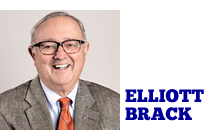 Her most recent book is Leadership in Turbulent Times, concentrating on the key turning points of the tenure of four presidents: Lincoln, both Roosevelts, and Lyndon Johnson.
Her most recent book is Leadership in Turbulent Times, concentrating on the key turning points of the tenure of four presidents: Lincoln, both Roosevelts, and Lyndon Johnson.
Her insight particularly of not why, but how, these four presidents made monumental decisions, is the key takeaway from this recent book of hers. Each of these four great presidents had to search hard for how they could take action in a crisis. All four were wary of taking extra-ordinary action when precedents had not been set before. Each sought legal means, often delicate points to move when our country faced a difficult crisis.
Ms. Goodwin’s book offers a sharp contrast to the manner that current President Donald Trump has taken in delicate situations, while often circumventing previous protocols and policies.
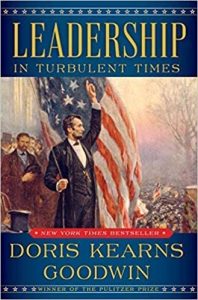 One situation Theodore Roosevelt found the nation in soon after taking office was a far-reaching anthracite coal strike. It lasted more than six months. As the year moved closer to winter, stores of coal were running seriously low, meaning that people especially in the Northeast, heavily dependent on coal, would suffer without heat in winter.
One situation Theodore Roosevelt found the nation in soon after taking office was a far-reaching anthracite coal strike. It lasted more than six months. As the year moved closer to winter, stores of coal were running seriously low, meaning that people especially in the Northeast, heavily dependent on coal, would suffer without heat in winter.
Meanwhile, Teddy Roosevelt was concerned about the rampant consolidation of corporate wealth, as a result of the Industrial Revolution. Roosevelt felt that its speed and size “accentuates the need of the Government to have some power of supervision and regulation over such corporations.” Eventually, he found a way to bring the two sides together, and eventually solved the strike, and kept people in the Northeast warm. But he made sure that he took only legal means to make this happen.
Roosevelt understood that only the government itself could bring the two sides to the table. That was something new for this country, that is, the government taking such leads to solve problems that neither big business and labor wanted the government to step in on. But, Roosevelt knew that the two sides would have taken such steps. Eventually, this led to the government becoming involved and Roosevelt’s “trust busting” of Standard Oil, and other corporations and monopolies that held our nation in a stranglehold for essential goods and services.
This step that Theodore Roosevelt started can bring us to the modern times. Today we are not threatened by Standard Oil monopolizing the energy market. Today we see information technology companies like Amazon, Google, Microsoft, Facebook and other modern services, gaining more and more of a stranglehold on our information. Do they need breaking up?
Meanwhile, financial institutions are even more massive than ever before. Do we need to wake up and insist that the banks have better controls, and not be so big?
So the question: is it time for our government to become more aggressive against these private companies and more on the side of the individual, since these modern entities amass more power and dominate their fields and seem to grow even larger each day? Are they gaining too much power?
Sadly, it appears that no one on the horizon has stepped forward to curtail the power of today’s high-tech companies, Big Banks, or any other industry that is becoming humongous in many fields.
Is bigger better? Perhaps Doris Kearns Goodwin might tackle that subject next.
- Have a comment? Send to: elliott@brack.net
Talking about race: It’s a fear we have to work on to resolve
By Debra Houston, contributing columnist
LILBURN, Ga. | Psychologists say Americans have two overriding fears: death and public speaking. I’d like to add a third: talking about race.
![]() Actually, we do talk about race; whites talk to whites and blacks talk to blacks. Why can’t we cross racial lines and address our problems? I think it’s because we fear accusation, confrontation, and resignation.
Actually, we do talk about race; whites talk to whites and blacks talk to blacks. Why can’t we cross racial lines and address our problems? I think it’s because we fear accusation, confrontation, and resignation.
I wrote online to nobody in particular, “I feel like my heritage is being taken away from me.” A lady of color keyed in that her people had more to worry about that than about toppled statues. She spoke about George Floyd and other police killings and centuries of abuse at the hands of whites. “You should hope,” she wrote, “that when we take control, we’ll be more humane toward you than you were toward us.”
I responded, “That’s a hateful thing to say.”
Did I want hateful? She described decades of racial inequality.
I found myself agreeing with her recollection of history. We were about the same age, and I told her I remembered Dr. King’s assassination. “I believe things would have turned out better had he lived.”
“You know,” she said, “it seems like we’ve headed into a good conversation. I want to ask you something. I don’t understand why poor white men fought for slavery when they had no slaves.”
They didn’t fight for slavery, I said. I could only look to my own family who possessed a plot of red clay they farmed themselves. They heard the Union was invading, and they wanted to protect what little they owned. Those who survived the war faced humiliation, and some took out their frustration on freed slaves. I confessed to the online lady that I was sorry.
I also described a letter my great-grandmother wrote to the state of Georgia requesting her deceased husband’s military pension. She was “too old and too sick to work.” And there was no use asking her children for help, because they were poor too.
The online lady later told me that people look at their lives through their own experiences, and added; “I’ve enjoyed talking with you, and hope to talk with you again.” The feeling was mutual.
Though painful at first, we addressed a difficult topic with honesty and humility.
Activists can’t help us communicate with one another because they often have a hidden agenda. The media can’t help us because they are selling conflict. The government can’t help because they gave us Jim Crow.
That just leaves us to resolve this difficult dilemma.
- Have a comment? Send to: elliott@brack.net
Lail Family Dentistry
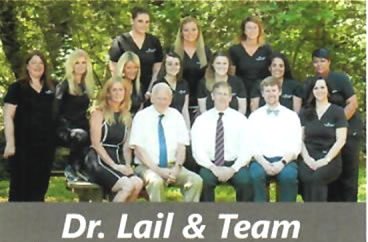 The public spiritedness of our sponsors allows us to bring GwinnettForum.com to you at no cost to readers. Lail Family Dentistry has been serving the community in Duluth and Gwinnett County for 50 years. Being the longest serving dental practice in the county, our roots run deep within our community and will continue to do so for generations to come. The doctors at Lail Family Dentistry are all members of the Lail family and are here to provide for you and your family. If you are looking for a traditional, hometown dentist with convenient hours that utilizes the latest dental techniques and technology, then we would be glad to welcome you to our practice. For more information please visit our website at DRLAIL.COM. Or phone (770) 476-2400.
The public spiritedness of our sponsors allows us to bring GwinnettForum.com to you at no cost to readers. Lail Family Dentistry has been serving the community in Duluth and Gwinnett County for 50 years. Being the longest serving dental practice in the county, our roots run deep within our community and will continue to do so for generations to come. The doctors at Lail Family Dentistry are all members of the Lail family and are here to provide for you and your family. If you are looking for a traditional, hometown dentist with convenient hours that utilizes the latest dental techniques and technology, then we would be glad to welcome you to our practice. For more information please visit our website at DRLAIL.COM. Or phone (770) 476-2400.
- For a list of other sponsors of this forum, click here.
Air ride is fascinating, listening to Congressman Lewis
Editor, the Forum:
![]() It was early one Monday morning, and I was catching a Delta flight out of Hartsfield to Washington National. After finding a parking place, getting through security, then I almost sleepwalked through First Class to my aisle seat on the bulkhead.
It was early one Monday morning, and I was catching a Delta flight out of Hartsfield to Washington National. After finding a parking place, getting through security, then I almost sleepwalked through First Class to my aisle seat on the bulkhead.
While settling in without noticing who was sitting in the window seat, I opened my book, The Parting the Waters, America in the King Years, 1954-63, by Taylor Branch. All of a sudden, my reading was interrupted by a booming voice, “Good book, huh?”
I looked over and it was Congressman John Lewis. I was almost speechless, co-incidentally finding myself in the presence of one of the main characters of the book that I held in my hand. “Good morning, Congressman,” I must have said, and there upon started one of the most memorable conversations of my life. I asked him if he didn’t mind talking, and he replied that he enjoyed conversation on airplanes as it made his commute to Washington faster and that he learned much from citizens and constituents on these flights.
In other words, Lewis was a listener. But I wanted him to talk about “his march for change to part the waters,” and talk he did. It was a wonderful conversation, and I wish that I could have recorded it, but actually I held much of it in my hand in the form of Taylor Branch’s book.
The plane landed and we embarked together, walking toward baggage claim. He remarked that he had enjoyed his flight with me and if he might ever be of help, “Don’t be afraid to pick up the phone and call.” With that he offered his card.
As we walked, he acknowledged gracefully and modestly the nods and smiles of those who recognized him. We said our goodbyes and he wished me well. As I walked away, I thought to myself that I had just had a brush with goodness and greatness, and, yes, with one of the nicest men whom I have ever met.
Thanks, John Lewis, for the memory, your legacy will live forever, and my one hour and a half with you will live forever with me.
— Ross Lenhart, Park Springs, Stone Mountain
How long can economic bubble continue before it bursts?
Editor, the Forum:
The Dow hit 7,558 on November 20, 2008. On November 4, 2016, the Dow was 17,888. Today, the Dow is 26,449.
We bought debt from banks and corporations plus a health insurance program. Now we have an economy halted from a Chinese virus while expanding our military assets. Too good of a thing to let fail. Just how long can we blow up the bubble until it pops?
There are amazing new technologies rapidly accelerating our advancement. Yet the world is full of many simple people without skills still living at subsistence levels. These are the massive majority of the people in the world.
Our economic collapse would cause immense suffering in the world. Our consumption supports so many markets. It would have a domino collapse. There will be a chain of events in the end that will set the world community back 50 years.
— Byron Gilbert, Duluth
Send us your thoughts: We encourage you to send us your letters and thoughts on issues raised in GwinnettForum. Please limit comments to 300 words. We reserve the right to edit for clarity and length. Send feedback and letters to: elliott@brack.net
County seeks online input on 14-mile segment of Loop Trail
Gwinnett residents still have an opportunity to help shape a plan to improve bike and pedestrian connectivity between parks and trails and to popular destinations in the Duluth and Suwanee area. A public hearing was held July 27 on the trail.
The meeting will be hosted through WebEx, so people can join by computer, smart phone, or other device. Sign up through the Eventbrite page, to receive an email with instructions for logging in. Details for joining the meeting can also be found at this link.
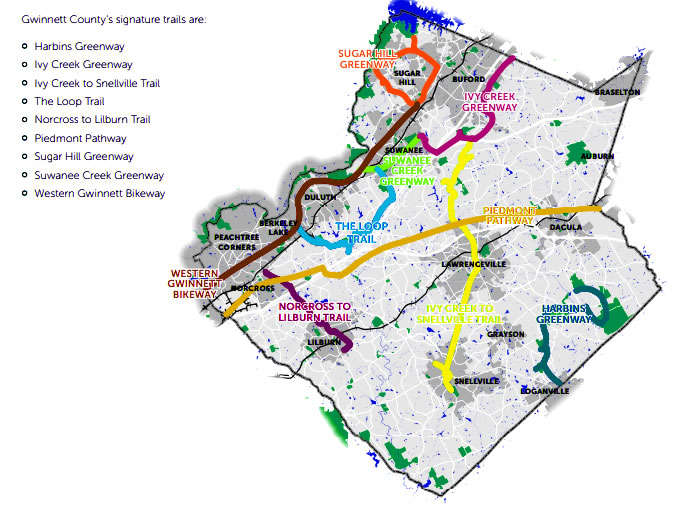 Called the Loop Trail (right, in teal), the pathway is envisioned to be the most active trail in the County and is one of the nine signature trails recognized in the Countywide Trails Master Plan adopted in 2018. The trail also will help reduce traffic congestion and improve mobility and connectivity.
Called the Loop Trail (right, in teal), the pathway is envisioned to be the most active trail in the County and is one of the nine signature trails recognized in the Countywide Trails Master Plan adopted in 2018. The trail also will help reduce traffic congestion and improve mobility and connectivity.
The Countywide Trails Master Plan at GwinnettTrails.com features a rendering of the trail.
Gwinnett County, in partnership with the Sugarloaf Community Improvement District and the Atlanta Regional Commission, is conducting the Loop Trail Study to analyze a 14-mile segment of a 17-mile trail that will link to the Western Gwinnett Pathway, which runs along Peachtree Industrial Boulevard. The proposed trail will be a combination of multiuse side paths running parallel to roadways and meandering paved trails through greenspace and parks, including connections between Shorty Howell and McDaniel Farm Parks. Starting west of Shorty Howell Park, the Loop Trail will provide opportunities for bicyclists, joggers, walkers and others to travel to the Gwinnett Place Mall area as well as the Infinite Energy Center and future developments near Sugarloaf Parkway and Satellite Boulevard.
The Gwinnett County Transportation and Community Services departments created the Countywide Trails Master Plan in partnership with the county’s cities and community improvement districts.
Funding for the Loop Trail Study comes from the ARC Transportation Improvement Program, Gwinnett County and the Sugarloaf CID. With the Loop Trail proposed to cross much of its area, the Gwinnett Place CID also is playing an important role in guiding the development of the Loop Trail Study.
An online survey is available for participants to provide input into the development of the Loop Trail.
Hendrickson is new president of GGC Foundation
A new president of the Georgia Gwinnett College Foundation has been named, while new members have joined its board of directors.
Jennifer Hendrickson is the new president, assuming her role in June. She previously served as associate vice president for Development and managed all fundraising initiatives including corporate and foundation relations, alumni, annual giving and individual engagement. The former president of the foundation was Lori Buckheister.
New members of the board of trustees of the Foundation include Norberto Sanchez, Don Balfour and Lee Tucker.
Sanchez is the founder and CEO of Norsan Group, Inc., comprised of restaurant groups, a food distribution company and a media group. Included in Norsan’s restaurant concepts are Frankie’s The Steakhouse at the 1818 Club, Pampas Steakhouse, Luciano’s Ristorante and Frontera Mex-Mex Grill. Norsan also operates Prime Meats, which provides meat products to restaurants and grocery stores in the Southeast. Charlotte-based Norsan Media operates 23 Spanish radio stations in the Carolinas and Florida. Norsan Media also includes Spanish-language television stations, print services, digital media and large-scale events targeting the Hispanic community in the markets it serves.
Sanchez earned a bachelor’s of science in mechanical and electrical engineering from Monterrey Tech in Monterrey, Mexico. Through a partnership between his alma mater and Georgia Tech, Sanchez relocated to Georgia to obtain his master’s degree in industrial engineering from Georgia Tech.
Former Georgia Sen. Don Balfour has been serving as an ex-officio member due to his role as School of Business Board of Visitors chair since 2018. Balfour is a vice president with Waffle House, Inc., where he has worked since 1984. He spent 22 years in the Georgia Senate, where he served on the Senate Rules Committee, the Appropriations Committee, Education Committee, and the Health and Human Services Committee. While in the Senate, Balfour authored and helped pass the bill that established Georgia Gwinnett College. He holds a bachelor’s of science in accounting from Bob Jones University.
Lee Tucker is a founding partner of Mahaffey Pickens Tucker, LLP. Tucker worked as an associate with King & Spalding, LLP, an international law firm. He also served as an assistant to Georgia Governor Zell Miller.Tucker received his J.D. from the Georgia State University College of Law and a bachelor’s degree in history from the University of Georgia.
David Bowen, a Gwinnett County native and charter member of the board, will conclude 14-year service on the board, but will still be active on the board’s Finance and Audit Committee.
Snellville seeks input on Unified Development Ordinance
The City of Snellville is seeking resident input on the proposed Unified Development Ordinance (UDO) before it is adopted later this year.
 A website where residents can review the proposed code is now operational and can be found here: www.snellvilledevelopmentcode.org/diary-updates/a-renovated-development-code.
A website where residents can review the proposed code is now operational and can be found here: www.snellvilledevelopmentcode.org/diary-updates/a-renovated-development-code.
The UDO is a consolidation of most City of Snellville ordinances and regulations related to the development and use of property into one user-friendly document. Rather than have separate ordinances affecting such things as land use, subdivision, flood and environmental protection, building standards; all of these have been consolidated into one document.
City officials said the current rules that guide development in Snellville are confusing, unclear and sometimes conflicting. The UDO revision seeks to make them user-friendly for both the public and city officials. Additionally, many of the rules successfully supported the development of undeveloped land for decades but are now poorly suited to encouraging much-needed redevelopment.
City staff and their UDO consultants will consider comments in preparing the official draft UDO that will be introduced for adoption later this year. During the adoption process, the public can continue to submit comments for consideration, however, once the UDO is adopted by the Mayor and City Council it can only be changed by that body.
The city Planning Commission is scheduled to have a public hearing on the UDO September 22 and the Mayor and Council will have a public hearing October 26.
The Meal Bridge Program helping patients cranks up again
The Collins Hill student who started a meal program to help frontline workers at Northside Gwinnett Medical Center is back supplying meals for healthcare heroes again.
Christa Campbell told GwinnettForum Monday that since the hospital has recently seen an increase in COVID-19 patients, “We are working with restaurant partners again, but need the support from the local community and businesses.” Donors to the program can sign up to provide meals or make donations at this GoFundMe site which allows Christa’s program to buy snacks and drinks for these workers.
Before the program was paused, The Gwinnett Meal Bridge had served over 4,000 meals and raised over $3,000 for the program. In addition, she says that there were large donations from restaurants like Chick-Fil-A which allowed an expansion of the breakfast program.
Donors may purchase meals through participating local restaurants and directly order meals for the frontline workers at the hospital at best a day or two before delivery. Local restaurants currently participating include:
- Universal Joint,770 299 1898;
- Blue Rooster, 770 995 0065;
- Cosmo’s, 770 338 9274;
- Feast 26, 770 675 3572;
- Smokin Gold BBQ, 770 466 3227;
- Jason’s Deli, 770 962 9090;
- Chili’s, 770 513 0970;
- Cuernavaca Grill, 770 822 0655;
- Catering Concepts, 770 256 2662;
- Chick-fil-A, 770 962 7844;
- Jimmy Johns, 770367 3631; and
- Jet’s Pizza, 770 2237 0006.
Book on CD Review:
The Lost Warriors of God: The True History of the Knights Templar by Thomas J. Madden
![]() From Karen Harris, Stone Mountain: Professor Thomas Madden presents long-pondered information about the Knights Templar. This religious military order was also known as the Order of Solomon’s Temple or the Templars. Founded in 1139 and active until 1312, this Catholic Military Order was comprised of men who gave up wealth, privilege and ownership of property to protect Christian pilgrims. The templar knights wore white mantles with large red cross and were skilled fighting units of the Crusades. The order was also skilled at handling finance. Professor Madden also presents information about the Order of Knights of St. John of Jerusalem or Hospilitallers, who arose in the early 11th century, at the time of the great monastic reformation. Many battles, and friction over finances led to the slow demise of the order, which some speculate had reappeared as Masonic Temples or Freemasonry in the 17th and 18th centuries. It’s a fascinating history about secret orders.
From Karen Harris, Stone Mountain: Professor Thomas Madden presents long-pondered information about the Knights Templar. This religious military order was also known as the Order of Solomon’s Temple or the Templars. Founded in 1139 and active until 1312, this Catholic Military Order was comprised of men who gave up wealth, privilege and ownership of property to protect Christian pilgrims. The templar knights wore white mantles with large red cross and were skilled fighting units of the Crusades. The order was also skilled at handling finance. Professor Madden also presents information about the Order of Knights of St. John of Jerusalem or Hospilitallers, who arose in the early 11th century, at the time of the great monastic reformation. Many battles, and friction over finances led to the slow demise of the order, which some speculate had reappeared as Masonic Temples or Freemasonry in the 17th and 18th centuries. It’s a fascinating history about secret orders.
An invitation: what books, restaurants, movies or web sites have you enjoyed recently? Send us your recent selection, along with a short paragraph (150 words) as to why you liked this, plus what you plan to visit or read next. Send to: elliott@brack.net
Aaron breaks Babe Ruth’s record in Atlanta in 1974
The Braves moved to Atlanta in 1966, and Hank Aaron moved with them. On May 17, 1970, he became the first player to make both 3,000 career hits and more than 500 career home runs. By then it had become apparent that he could conceivably break Babe Ruth’s record of 714 career home runs. The threat to Ruth’s record prompted racial antagonism toward Aaron and his family. In 1973 numerous death threats forced him to hire a bodyguard. His daughter, Gaile, a student at Fisk University in Nashville, Tenn., received threatening phone calls and was the target of an abortive kidnapping plot. In spite of the hatred around him, Aaron finished the season just one home run short of Ruth’s record.
More controversy surrounded Aaron as the 1974 season began. The Braves’ management opted to bench their cleanup hitter for the first three games at Cincinnati so that he could break the home run record in Atlanta. Commissioner Bowie Kuhn disagreed with the move and ordered that Aaron play in the opening games. He played two of the three games and tied Ruth’s record without breaking it.
On April 8, 1974, the stage was set for the breaking of one of baseball’s most famous records. In front of a record crowd at Atlanta–Fulton County Stadium, the 40-year-old Aaron faced pitcher Al Downing of the Los Angeles Dodgers. In the fourth inning he knocked a fastball over the left field fence, his 715th home run. The crowded stadium of 53,775 fans erupted in celebration as fireworks went off overhead. As he rounded third, Aaron saw his teammates and parents waiting for him at home plate. Looking back on his struggle to break the record, Aaron said, “Thank God it’s over.”
That was Aaron’s final season for the Braves. Frustrated by the lack of support from local fans for the team and for himself, he returned to Milwaukee, where he played for two seasons with the Brewers. When he retired after the 1976 season, his career statistics included records for 755 home runs; 2,297 RBIs; 6,856 total bases; and 1,477 extra base hits.
After retiring as a player, Aaron moved back to Atlanta, where he has served in various corporate positions, including corporate vice president of community relations for Turner Broadcasting, a member of the TBS Board of Directors, vice president of business development for the Airport Network, and senior vice president of the Braves. In 1991 he published his autobiography, I Had a Hammer: The Hank Aaron Story, with collaborator Lonnie Wheeler, which became a best-seller, and he eventually owned a BMW dealership in Atlanta.
In 2002 U.S. president George W. Bush awarded him a Presidential Medal of Freedom, and in 2010 he was inducted as a Georgia Trustee, an honor conferred by the Georgia Historical Society and the Office of the Governor.
On August 7, 2007, Barry Bonds of the San Francisco Giants hit his 756th home run, thereby breaking Aaron’s record. The event was controversial, given that Bonds was under investigation at the time for the alleged use of performance-enhancing steroids, but the occasion was nevertheless marked at the ballpark in San Francisco, Calif., by fireworks and a recorded message from Aaron congratulating Bonds.
- To view the Georgia Encyclopedia article online, go to http://georgiaencyclopedia.org
Mystery Photo might be in Europe, or maybe in the U.S.
Hmmmm. Is this edition’s Mystery Photo in an European or more American setting? The building is traditional enough for either clime. Figure out where this building is located, and send your thoughts to ellott@brack.net, including your hometown.
Last edition’s Mystery Photo turned out to be familiar with several people recognizing The Trevi Fountain in Rome. The photo came from Frank Sharp of Lawrenceville. Identifying the photo were Renee Byrd-Lewis, Buford; Susan McBrayer, Sugar Hill; Lou Camiero, Lilburn; Kay Montgomery, Duluth; Howard Hoffman, Peachtree Corners; and Virginia Klaer of Duluth. Note the Camerios of Lilburn at the Trevi Foundation.
George Graf of Palmyra, Va. added this element: “In the last year, Rome’s authorities have imposed new rules banning souvenir stalls and mobile snack bars near Trevi Fountain. Most of the structure of the Trevi Fountain was made with travertine stone. A class of limestone, this material is deposited by mineral springs such as hot springs. The name ‘travertine’ comes from the Latin word ‘tiburtinus,’ meaning ‘from Tibur.’ The actual Tivoli city ‘Tibur’ lies 35 kilometers eastward from Rome. The left side of the arch features the statue of Goddess Abundance with the horn of plenty. The right side of the arch features the statue of Goddess Health with the Greek name Hygieia.”
Allan Peel, San Antonio, Tex.: focused his identification on the tradition of tossing coins into the fountain It gained popularity after it was the theme of the 1954 romantic comedy Three Coins in the Fountain, but it actually started long before the movie. Originally, it was said that drinking a glass of water from the Trevi Fountain would ensure good fortune and a fast return to the Eternal City. Each day the waters of the Trevi Fountain are turned off for one hour while city workers sweep the coins from the fountain. Since 2006, the Roman Catholic charity ‘Caritas’ has been sorting and cleaning the daily collection from the fountain. The equivalent of some $1.26 million dollars is collected from the fountain annually, and it is distributed to the poor.”
Three components getting together at the same time
 Photographer Mary Beth Twinning Obermeyer of Buford had her camera in the right spot to capture this fritillary butterfly on a Mexican sunflower.
Photographer Mary Beth Twinning Obermeyer of Buford had her camera in the right spot to capture this fritillary butterfly on a Mexican sunflower.
This is a case of the photographer, the butterfly and the flower getting together at the same time! Thanks to Susan McBrayer for sending this along.
GwinnettForum is provided to you at no charge every Tuesday and Friday.
Meet our team
- Editor and publisher: Elliott Brack, 770-840-1003
- Managing editor: Betsy Brack
- Roving photographer: Frank Sharp
- Contributing columnist: Jack Bernard
- Contributing columnist: Debra Houston
- Contributing columnist: George Wilson
More
- Location: We are located in Suite 225, 40 Technology Park, Peachtree Corners, Ga. 30092.
- Work with us: If you would like to serve as an underwriter, click here to learn more.
Subscriptions to GwinnettForum are free.
- Click to subscribe.
- Unsubscribe. We hope you’ll keep receiving the great news and information from GwinnettForum, but if you need to unsubscribe, go to this page and unsubscribe in the appropriate box.
© 2020, Gwinnett Forum.com. Gwinnett Forum is an online community commentary for exploring pragmatic and sensible social, political and economic approaches to improve life in Gwinnett County, Ga. USA.


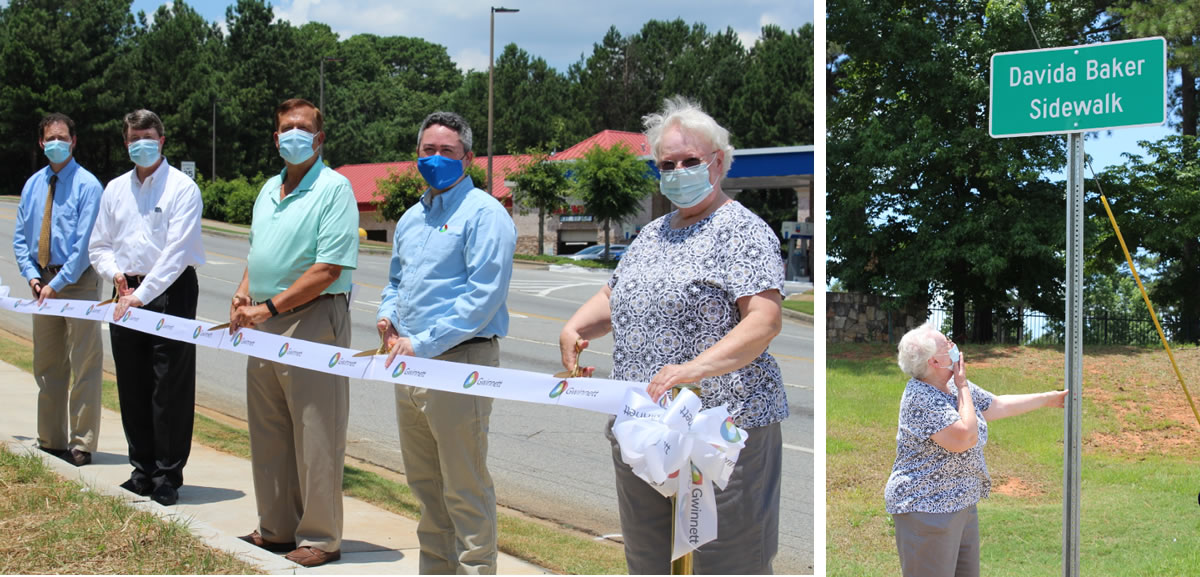


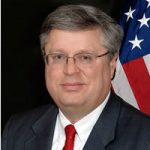
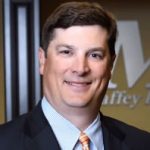


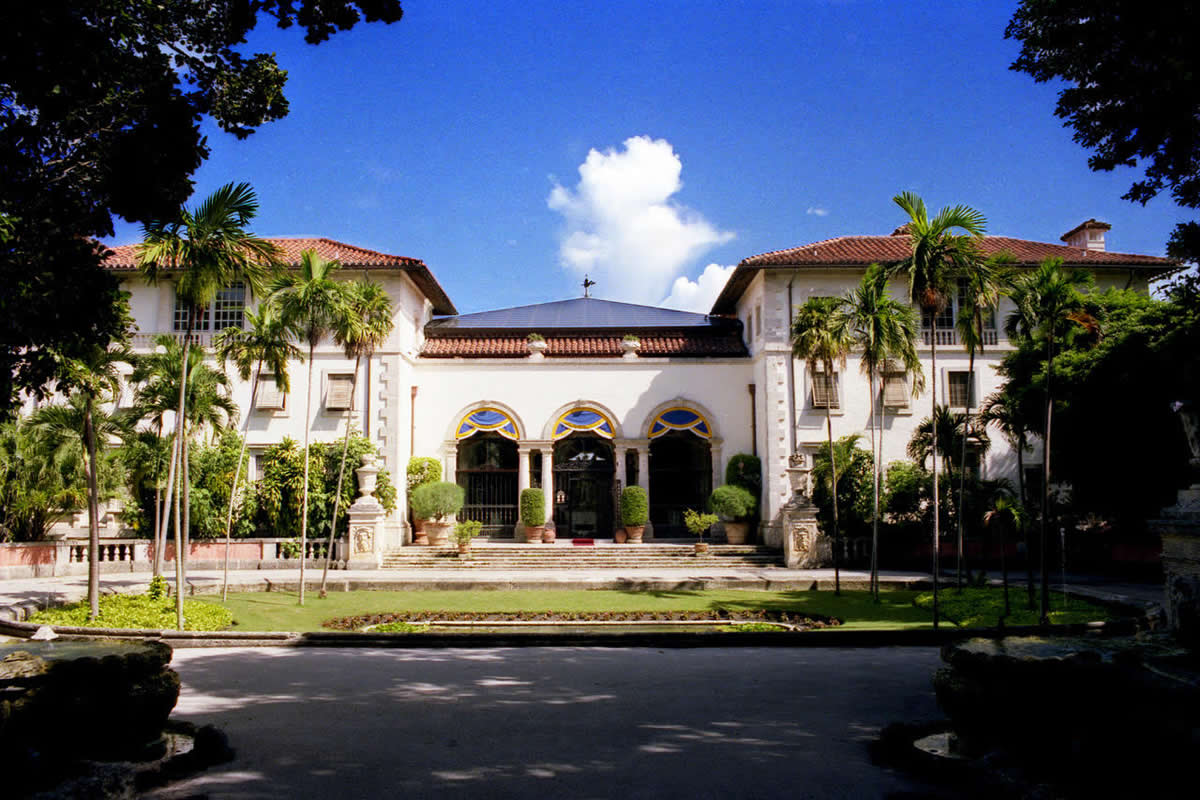
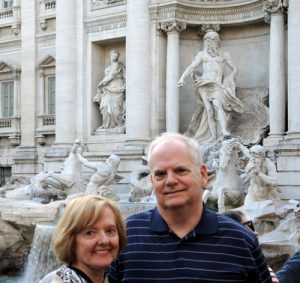








Follow Us